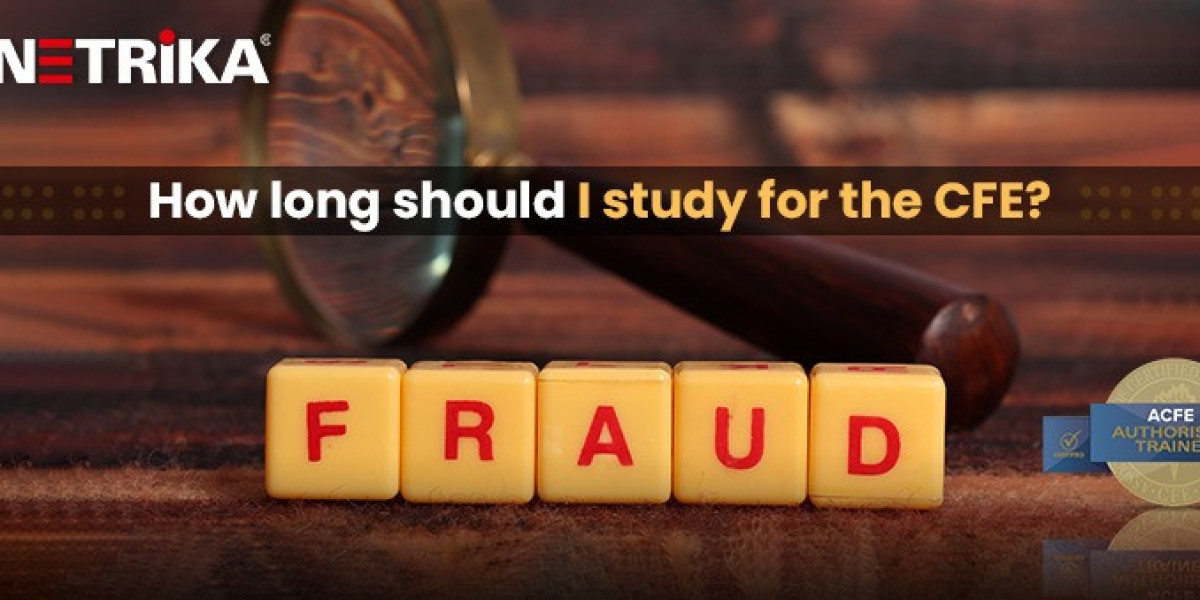CFE Certification
The CFE certificate is provided by the Association of Certified Fraud Examiners (ACFE), the world’s leading anti-fraud organisation that offers anti-fraud training and education. CFE experts gain visibility and credibility in a range of commercial fields due to the certification’s global acceptance.
The CFE Exam is relatively easy, but passing it and receiving the certification necessitate diligence and hard work. This involves the preparation of a strategy as well as some valuable guidance by the aspirant. A comprehensive plan and preparation suggestions can help the individual pass the exam on the first try.
Although the breadth of information covered in the CFE Exam can be intimidating, if you create a weekly study plan, you can be certified in as little as 60 days simply studying on your lunch hour. Begin by choosing a study schedule you can fit into to your current schedule.
Complete one module in 5-6 days and all four modules in 20-25 Days. In this schedule, daily 4-5 study hours will be required. Don’t believe the advertisements claiming that you can complete it in 30 days by studying one hour a day. It’s nothing other than a Myth and misguidance.
CFE Exam Course
The exam will assess your understanding of four important areas of fraud investigation: financial transactions and fraud schemes, law, investigation and fraud prevention and deterrence. These four topics correspond to the four sections of the Fraud Examiners Manual, which serves as the primary source of information for all subject matter covered on the CFE Exam.
Financial Transactions and Schemes of Fraud
This part assesses your understanding of the many fraudulent financial transactions recorded in accounting records. You will be required to demonstrate knowledge of the following concepts in this area of the exam:
- Accounting and auditing fundamentals
- Schemes of deception
- Internal safeguards to prevent fraud
- Other accounting and auditing issues
Law
This section focuses on the statutes and common law principles used to prosecute fraudsters. It also ensures that you are aware of the numerous legal implications of conducting fraud investigations, such as:
- Civil and criminal law
- Evidence guidelines
- Rights of both the accused and the accuser
- Expert witness concerns.
Investigation
This section assesses your knowledge of the fundamental tools and strategies required to gather information and evidence during a fraud investigation and identify culprits. It contains questions about:
- Interviewing
- Considering remarks
- Obtaining data from public records
- Tracking down illegal transactions
- Considering deceit
- Report writing
Prevention and Deterrence of Fraud
This part tests your knowledge of why people commit fraud and how to prevent it. This section includes the following topics:
- The origin of crime
- White-collar criminality
- Occupational fraud
- Fraud prevention
- Fraud risk evaluation
- The ACFE Professional Ethics Code
CFE Exam Prep Course Tip
Even if every CFE aspirant is familiar with the examination syllabus, review it several times by dividing your time according to the subject and difficulty. While attempting to prepare materials and modules, it is critical to keep note of how you fared, as well as whether your performance has a rising or decreasing slope. This will help you design a better study strategy to earn a decent to a high percentage.
Earning the CFE Certification
⮚ Comply with the CFE regulations.
Before you may apply for the CFE certification, you must first meet the Association of Certified Fraud Examiners (ACFE) eligibility standards. The prerequisites are:
- A bachelor’s degree or equivalent from an accredited college or university
- Two years of professional experience in a field related to fraud detection and prevention
- Membership in the ACFE
- Adherence to the ACFE’s Code of Professional Ethics
⮚ Study for the CFE exam.
To help you prepare for the exam, the ACFE provides study materials such as textbooks, practice exams and online courses.
⮚ Pass the CFE exam as the third step.
The CFE exam consists of 400 multiple-choice questions divided into four portions of 100 each. Each exam section lasts two hours. Once you begin the exam, you have 30 days to finish it, and you must acquire a passing score of at least 75% on each part to earn the CFE credential.















